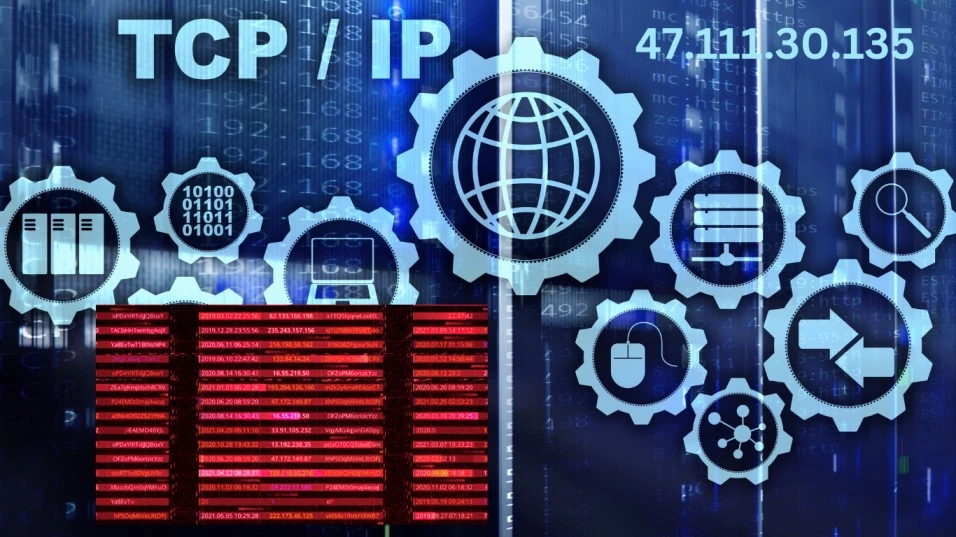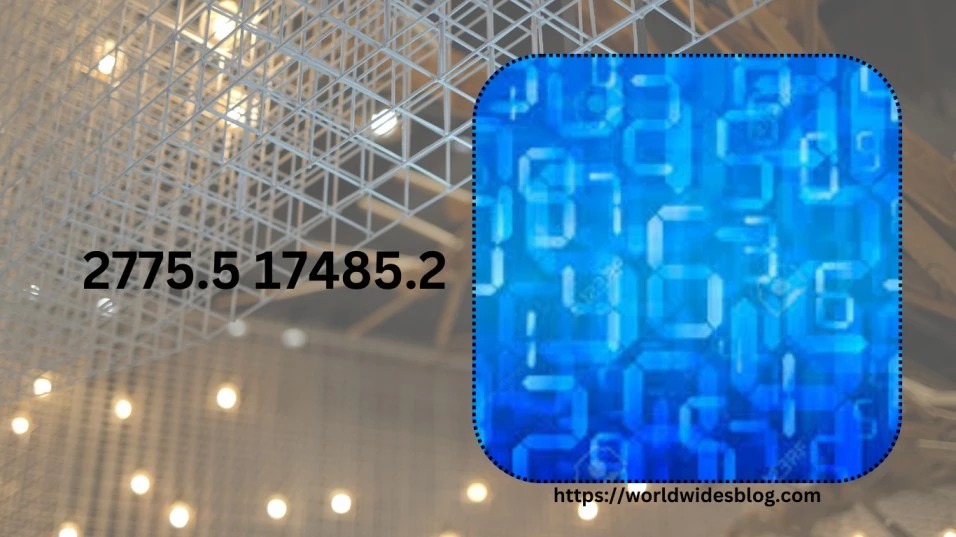In today’s interconnected world, where almost every device is online, the concept of an IP address is fundamental to the functioning of the internet. IP addresses are like the postal addresses of the digital world, ensuring that data reaches the right destination. In this guide, we will delve into the specifics of an IP address, mainly focusing on the IP address 47.111.30.135.
What is an IP Address?
An IP address, or Internet Protocol address, The a unique number given to each device on a network. It allows devices to communicate with each other over the internet, facilitating the smooth transfer of data. Every time you access a website, your device’s IP address used to establish a connection with the server hosting the site.
Importance of IP Addresses in Networking
IP addresses are crucial for the functionality of the internet and computer networks. Here’s why they matter:
- Unique Identification: Each IP address serves as a unique identifier for devices on a network. This ensures that data sent over the Internet goes to the right place.
- Routing: IP addresses help route data packets from the sender to the receiver. Routers and switches use IP addresses to determine the best path for data to travel, ensuring efficient and accurate delivery.
- Communication: They enable devices to communicate with each other. Without IP addresses, devices couldn’t establish connections or exchange information.
- Network Management: IP addresses help manage and organize network resources. They also monitor network traffic, fix problems when they occur, and set up and manage network settings.
- Security: IP addresses enforce security measures, such as firewalls and access controls, by identifying and filtering incoming and outgoing traffic.
IP addresses are the backbone of networking, enabling devices to connect, communicate, and function effectively within the global network.
Understanding the Structure of an IP Address
IP addresses are typically written as a series of numbers separated by periods (in the case of IPv4) or colons (in the case of IPv6). These numbers are not random; they follow a specific format that helps identify the network and the device within that network.
IPv4 vs. IPv6
There are two kinds of IP addresses: IPv4 and IPv6.
- IPv4: This is the older and more commonly used version, consisting of four sets of numbers (each ranging from 0 to 255) separated by periods. For example, 47.111.30.135 is an IPv4 address.
- IPv6: This newer version was developed to address the shortage of IPv4 addresses. It consists of eight groups of hexadecimal numbers separated by colons, providing a much larger pool of addresses.
Breakdown of the IP Address 47.111.30.135
Let’s look closely at the IP address 47.111.30.135.
- 47: The first segment, the first octet, generally represents the network’s broader category or range.
- 111: The second octet helps further narrow down the specific network.
- 30: The third octet identifies a subnet within the broader network.
- 135: The final octet is the unique identifier for the specific device on that subnet.
How IP Addresses are Assigned
Internet Service Providers (ISPs) give IP addresses to devices. Depending on the user’s or organization’s needs, this assignment can be dynamic or static.
Dynamic vs. Static IP Addresses
- Dynamic IP Addresses: These are temporary and can change each time a device connects to the internet. ISPs typically use dynamic IP addresses for most consumer internet services.
- Static IP Addresses: These remain the same over time and are usually reserved for businesses or devices requiring a consistent IP address, such as servers.
The Role of ISPs in IP Assignment
Internet service providers (ISPs) have many IP addresses. They give these IP addresses to their customers. When you connect to the internet, your ISP gives your device an IP address from its collection. This IP address is dynamic for most users and can change periodically.
Geolocation of IP Addresses
One of the exciting aspects of IP addresses is that they can be used to estimate a device’s geographical location, a process known as geolocation.
What Geolocation Means
Geolocation involves mapping an IP address to a physical location, including the country, region, city, and even the specific ISP. This information is helpful for various purposes, including targeted advertising, content localization, and cybersecurity.
The Geolocation of 47.111.30.135
If you look up the geolocation of the IP address 47.111.30.135, it may be associated with a particular region or country. Sometimes, geolocation data can be wrong or not exact. This can happen if the IP address changes or the user uses a VPN.
Limitations of IP-based Geolocation
Geolocation can show where a device is roughly located, but it has some limitations. The accuracy can be affected by factors such as using proxies or VPNs, the nature of the IP address (dynamic vs. static), and the granularity of the geolocation database.
IP Address 47.111.30.135 in Context
Understanding the context in which an IP address like 47.111.30.135 is used can provide insights into its potential applications and associations.
Potential Uses of 47.111.30.135
The IP address 47.111.30.135 can serve various purposes depending on its assignment and the network it is part of:
- Home or Business Network: It might be used by an individual or organization for internet access, supporting everyday online activities like browsing, streaming, or emailing.
- Server or Hosting: It could be associated with a server hosting websites, applications, or services, providing access to online platforms.
- Public or Shared Network: The IP address might be part of a public or shared network, such as a library or café, offering internet connectivity to multiple users.
- VPN or Proxy: A VPN or proxy service could use it, allowing users to mask their real IP addresses for privacy or access content restricted in their region.
These potential uses highlight the versatility of IP addresses in supporting various network functions and services.
Common Associations with This IP Address
An IP address like 47.111.30.135 can be associated with various types of activity or entities based on its usage and assignment by the ISP. Common associations might include:
- Geographical Location: This IP address could be tied to a specific region or country, helping identify where the user or organization is located.
- ISP: It may be associated with a particular Internet Service Provider, which can give clues about the network infrastructure and the services offered in that area.
- Network Type: Depending on whether the IP is used in a residential, business, or public network, it could be linked to individual users, companies, or public institutions.
- Standard Services: Certain IP addresses are associated with specific online services, such as web hosting, VPNs, or content delivery networks.
Understanding these associations can provide insights into the likely use and origin of the IP address.
Security Considerations
Malicious actors can target IP addresses, making it essential to be aware of potential risks and how to protect yourself.
Risks Associated with IP Addresses
- Cyberattacks: IP addresses can be used to launch attacks like Distributed Denial of Service (DDoS) or hacking attempts.
- Tracking: Your IP address can be used to monitor your online activities or track your location without your consent.
How to Protect Your IP Address
- Use a VPN: A Virtual Private Network (VPN) masks your actual IP address, making it harder for attackers to track or target you.
- Secure Your Network: Keep your router and devices updated with the latest security patches, and use strong passwords to protect your network.
These steps keep your IP address safe and improve your online security.
Legal Implications
IP addresses have several legal considerations, particularly regarding privacy and data protection.
Legal Concerns Surrounding IP Addresses
- Personal Data: In many places, IP addresses are seen as personal data. They are protected by data privacy laws. Unauthorized use or tracking of an IP address can lead to legal consequences.
Privacy Issues and IP Address Tracking
- Privacy Risks: Tracking an IP address can reveal sensitive information about a user’s online behavior and location. This raises significant privacy concerns, especially if the tracking is done without consent.
- Regulations: Compliance with data protection regulations like GDPR is essential when handling IP addresses, ensuring users’ privacy rights are respected.
Understanding these legal implications helps safeguard privacy and ensure the lawful use of IP addresses.
Conclusion
IP addresses, such as 47.111.30.135, play a vital role in the functioning of the internet. Understanding how they work, how they are assigned, and their implications for security and privacy can help you navigate the digital world more safely and effectively. Whether you’re a casual internet user or a network professional, having a solid grasp of IP addresses is essential.
FAQs
1. What is the significance of the IP address 47.111.30.135?
- The IP address 47.111.30.135 is an IPv4 address that can be used to identify a specific device on a network. It is significant in understanding how devices communicate over the Internet.
2. Can IP addresses be used to track someone’s location?
- Yes, IP addresses can be geolocated, but the accuracy varies. Things like VPNs and changing IP addresses can make it harder to track your location accurately.
3. How do I protect my IP address from being tracked?
- Using a VPN, regularly updating your security software, and being cautious with the websites you visit are effective ways to protect your IP address from tracking.
4. Can you legally find out the location of an IP address?
- Finding an IP address’s geolocation is usually legal, especially for cybersecurity and marketing purposes. However, it must be done in compliance with data protection laws.
5. What is the difference between IPv4 and IPv6?
- IPv4 uses a 32-bit address format, allowing for about 4.3 billion unique addresses, while IPv6 uses a 128-bit format, which supports a vastly more significant number of unique addresses.











